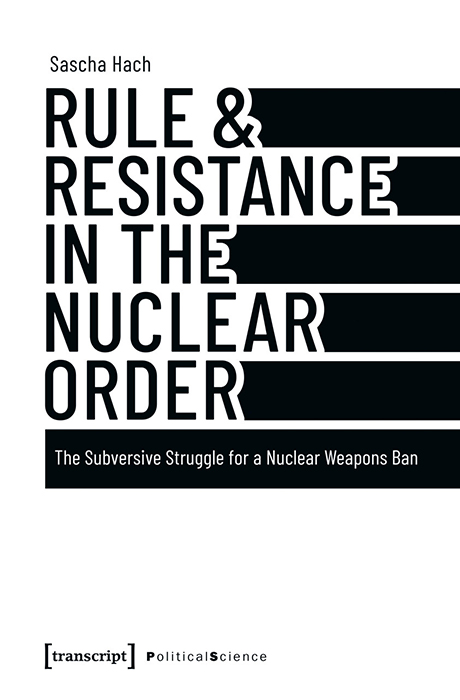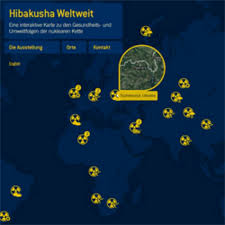Willkommen auf der Seite der "Textinitiative Fukushima"
Die Seiten der Textinitiative Fukushima werden derzeit von der Japanologie der Goethe-Universität betrieben. Gegenwärtiges Anliegen von TIF ist die zeitgeschichtliche Dokumentation. Das Forum dient nun in erster Linie als Archiv für Informationen zu 3/11 sowie allgemein zur Geschichte des Atomaren. Die Suchfunktion ermöglicht Recherchen zu Stichworten, Inhalten und Akteuren.
| Neustart der Atomenergie in Japan: The Diplomat, 2025 | 09.05.2025 |
"To understand Japan’s plan to restart nuclear power plants, it is essential to first examine the question: What caused the nuclear disaster at the Fukushima plant, operated by Tokyo Electric Power Company (TEPCO)? While the earthquake and tsunami were widely regarded as the immediate triggers, the National Diet Investigation Report identified the Fukushima nuclear meltdown as a “ man-made-disaster.” This argument centers on Japan’s so-called “nuclear village,” a tightly knit community composed of actors from the nuclear industry, national and local regulatory bodies, and academia. At the core of this nuclear village is a group of approximately 200 to 300 university scholars, many of whom know each other personally. Through these personal connections, they help their students secure positions in electric power companies, manufacturing firms, or as technical officials in government agencies and local authorities." (Zhuoran Li, The Diplomat, 3. May 2025) Link: https://thediplomat.com/2025/05/the-challenge-to-japans-nuclear-restart/ |
|
| Fukushima Art Annual 2025 福島アートアニュアル2025 | 08.05.2025 |
Die Ausstellung im Juni 2025 trägt den Titel "site──representation" und zeigt Werke von Tsuchida Sho und Suzuki Yuya. 土田翔/鈴木悠哉 2025年6月7日(土)〜29日(日) Links: https://art-museum.fcs.ed.jp/exhibition/upcoming
|
|
| "Light of Hope": Ansprache des Gouverneurs von Fukushima UCHIBORI Masao (März 2025) | 04.05.2025 |
Der Bürgermeister betont die Mühen und die Schwierigkeiten der Bürger, die sich um den Wiederaufbau von Fukushima bemühen und erwähnt dabei auch die gute Zusammenarbeit mit dem deutschen Bundesland Nordrhein-Westfalen in Sachen Energieerneuerungstechnikausbau. Zudem möchte er der Jugend der Welt eine Katastrophenerziehung zukommen lassen, indem sie Fukushima aufsucht. Ein Museum solle zudem dazu dienen, dass Fukushima nicht in Vergessenheit gerät. Links: |
|
| Publikation "Rule & Resistance in the Nuclear Order“ von Sascha Hach (2025) | 15.04.2025 |
Link: https://www.prif.org/en/press/details/ohne-macht-wie (PRIF) ----------------------------- |
|
| WELTKARTE der "hibakusha" | 14.04.2025 |
Zitate: "Im Japanischen werden die Überlebenden von Hiroshima und Nagasaki „Hibakusha“ genannt. Viele von ihnen setzen sich für eine Welt frei von atomarer Bedrohung ein – meist, indem sie den jüngeren Generationen ihre Geschichte erzählen. Überall auf der Welt folgen andere mutige Menschen ihrem Beispiel. Als Ärztinnen und Ärzte sehen wir uns in der Pflicht, über die Zusammenhänge der zivilen und militärischen Atomindustrie und über die gesundheitlichen Gefahren von Radioaktivität aufzuklären. Daher diese Ausstellung mit Orten, an denen sich ihre katastrophalen Folgen für Umwelt und Gesundheit zeigen. Präsentiert wird dabei nur eine kleine Auswahl an exemplarischen Orten. " "Nach Beginn der Atomkatastrophe in Fukushima im März 2011 bekam der Begriff in Japan eine neue Bedeutung: Nun nannten sich auch die Betroffenen der Atomkatastrophe von Fukushima so. Vielen Menschen wurde erstmals bewusst, dass Atomenergie und Atomwaffen zwei Seiten der selben Medaille sind (...)" ------------------------------ "Tokai-mura, eine kleine Stadt 120 km nordöstlich von Tokio, wird oft als das Herz von Japans Atomindustrie bezeichnet. 1956 entstand hier das japanische Atomenergie-Forschungsinstitut, gefolgt von Fabriken zur Herstellung von atomarem Brennstoff, Anlagen zur Wiederaufbereitung von Brennelementen und Japans erstem Atomkraftwerk. Heute stehen in Tokai-mura insgesamt 15 Atomanlagen einschließlich einer Brennstoffkonversionsfabrik. Hier wurde am 30. September 1999 Mischoxid-Brennstoff für den experimentellen Schnellen Brüter in Joyo hergestellt. Normalerweise wird dabei zunächst Uran in Form von „Yellowcake“ in Salpetersäure gelöst. Um den Prozess zu beschleunigen und so Geld zu sparen, füllten an diesem Tag Arbeiter der Anlage den Präzipitationsbehälter mit 16,6 kg Uran statt der erlaubten 2,4 kg. Die so entstandene kritische Masse löste eine atomare Kettenreaktion aus, die über einen Zeitraum von 20 Stunden große Mengen an Neutronen- und Gamma-Strahlung freisetzte. 161 Menschen mussten evakuiert werden; etwa 310.000 Einwohner im Umkreis von zehn Kilometern um die Anlage wurden aufgefordert, in ihren Häusern zu bleiben, da eine radioaktive Wolke mit strahlenden Partikeln wie Jod-131 durch das Belüftungssystem in die Atmosphäre geblasen worden war." Links: https://hibakusha-worldwide.org/de (IPPNW) |
|
|
56-60 von 819
|

 "2021 trat der Atomwaffenverbotsvertrag in Kraft, der auf die Initiative von Nicht-Atomwaffenstaaten und zivilgesellschaftlichen Bündnissen zurückgeht. Sein Ziel ist eine Welt ohne Atomwaffen. Zugleich stellt er die Sonderstellung der Nuklearwaffenstaaten und damit die bisherige nukleare Ordnung grundlegend in Frage. Wie konnte dieses Aufbegehren vergleichsweise kleiner Akteure gegen die militärisch mächtigsten Staaten der Welt erfolgreich bestehen? In seiner neuen Buchveröffentlichung „Rule & Resistance in the Nuclear Order“ legt Sascha Hach die Herrschaftsstrukturen des NVV offen und zeigt, wie es der Humanitären Initiative für Nukleare Abrüstung gelang, diese herauszufordern."
"2021 trat der Atomwaffenverbotsvertrag in Kraft, der auf die Initiative von Nicht-Atomwaffenstaaten und zivilgesellschaftlichen Bündnissen zurückgeht. Sein Ziel ist eine Welt ohne Atomwaffen. Zugleich stellt er die Sonderstellung der Nuklearwaffenstaaten und damit die bisherige nukleare Ordnung grundlegend in Frage. Wie konnte dieses Aufbegehren vergleichsweise kleiner Akteure gegen die militärisch mächtigsten Staaten der Welt erfolgreich bestehen? In seiner neuen Buchveröffentlichung „Rule & Resistance in the Nuclear Order“ legt Sascha Hach die Herrschaftsstrukturen des NVV offen und zeigt, wie es der Humanitären Initiative für Nukleare Abrüstung gelang, diese herauszufordern."